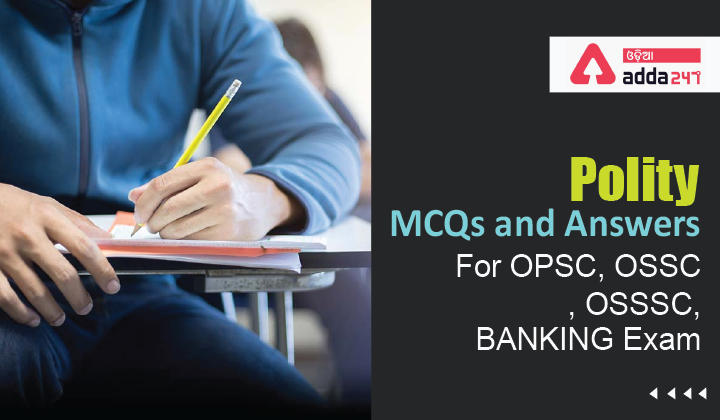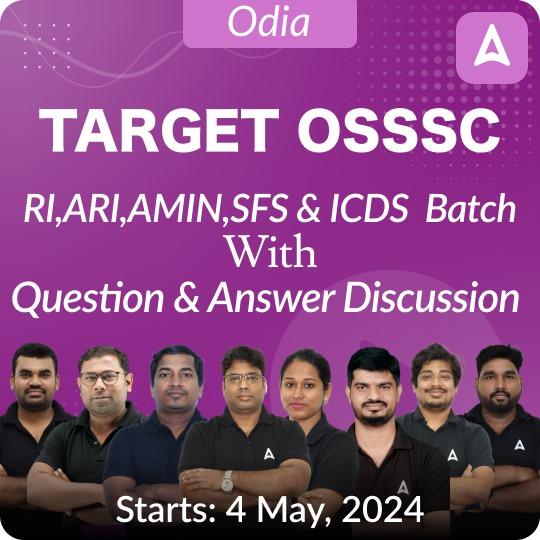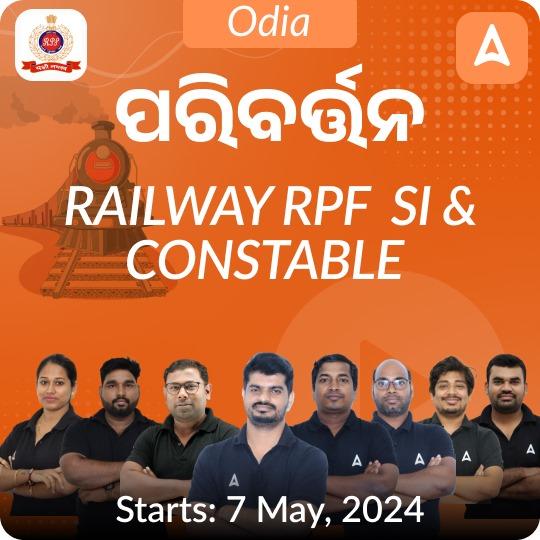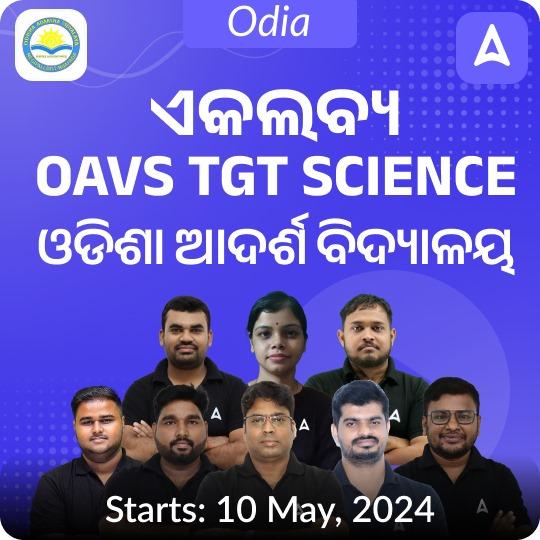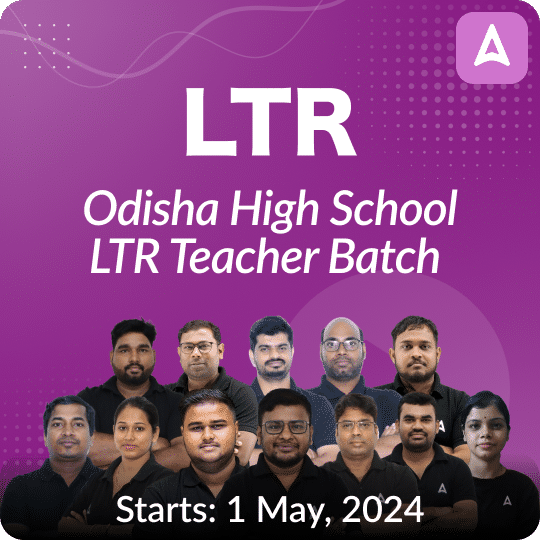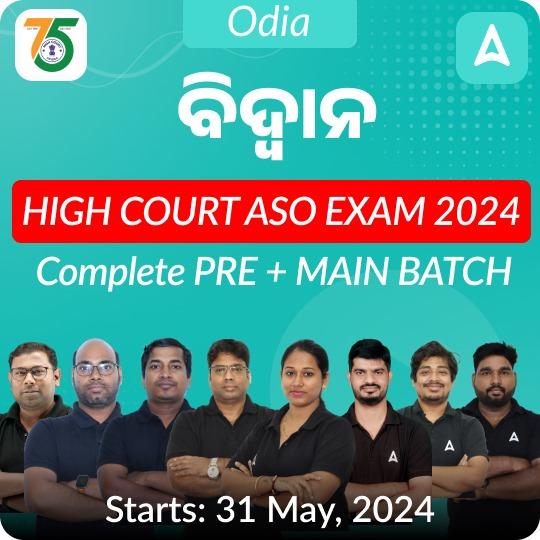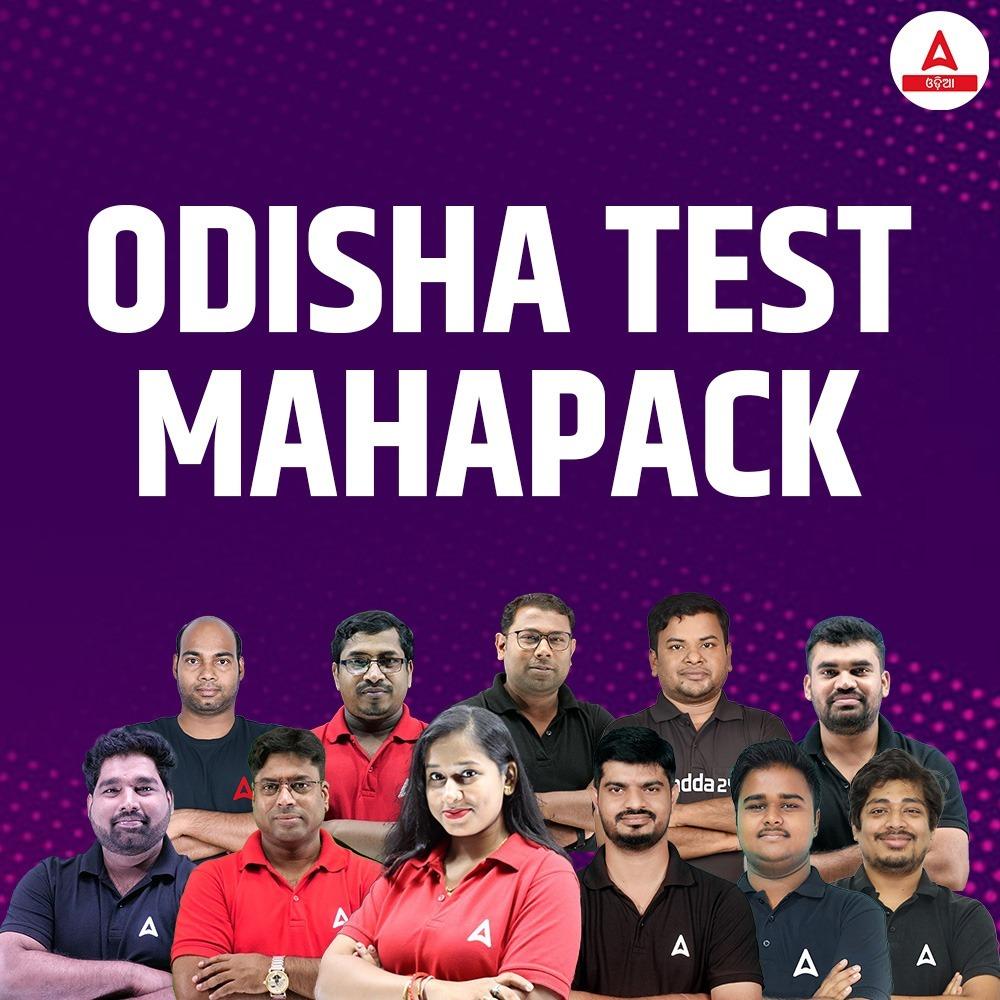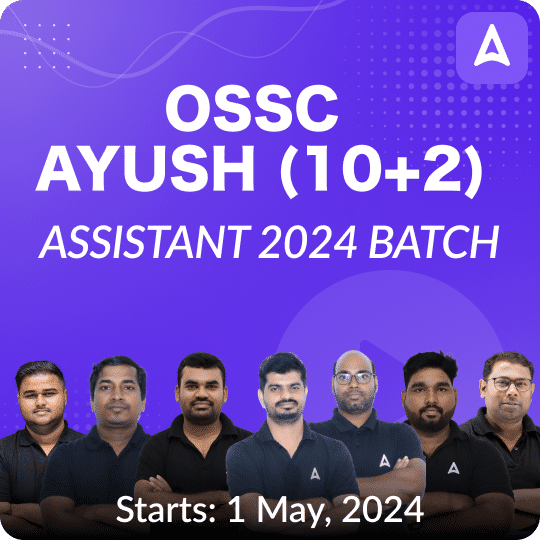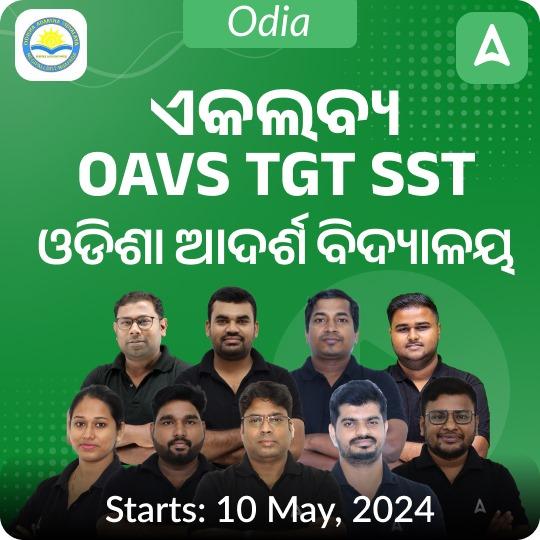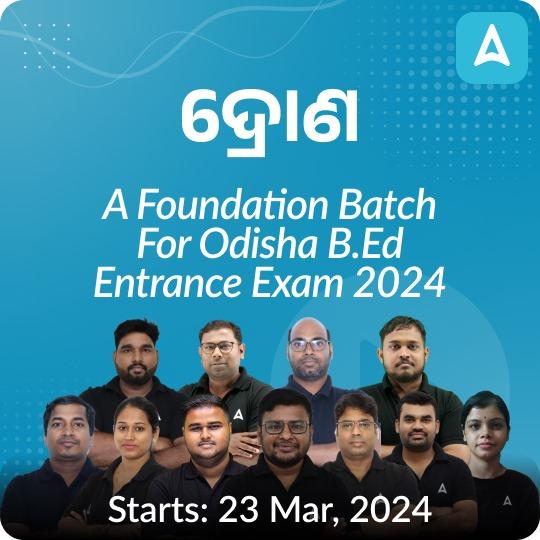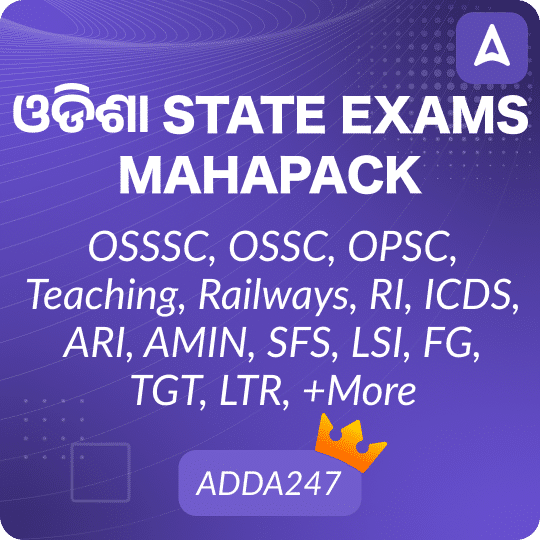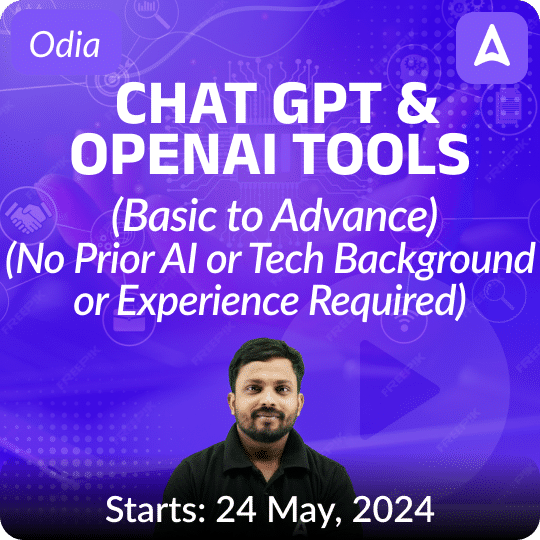Polity MCQs and Answers: Polity MCQs are very important for OPSC, OSSC, OSSSC & Other State Exams. Aspirants who are willing to apply for the various Government exams in 2022 must go through the topics of Polity for competitive exams, as Polity is a key part of the syllabus.
Download ADDA247 Odia APP – Appear Latest Exam Test Series & Live Classes
Q1. Which of the following Article of Indian Constitution deals with the Right to Equality before Law?
(a) Article – 13
(b) Article – 14
(c) Article – 15
(d) Article – 17
S1. Ans.(b)
Sol. Article-14 states that the State shall not deny to any person equality before the law or the equal protection of the laws within the territory of India.
Q2. Who among the following leaders dominated the Lucknow Pact in December, 1916?
(a) Jawahar Lal Nehru
(b) Bal Gangadhar Tilak
(c) Moti Lal Nehru
(d) Madan Mohan Malviya
S2.Ans.(b)
Sol. Lucknow Pact refers to an agreement reached between the moderates , militants and the Muslim League at the joint session of both the parties, held in Lucknow, in the year 1916. The Lucknow Pact also established cordial relations between the two prominent groups of the Indian National Congress the “hot faction” garam dal led by Bal Gangadhar Tilak, Lala Lajpat Rai and Bipin Chandra Pal, the Lal Bal Pal and the moderates or the “soft faction”, the naram dal led by Gopal Krishna Gokhale
Q3. An amendment of the constitution may be initiated _____
(a) By introduction by the President of India
(b) By introduction of a Bill in Rajya Sabha
(c) By the Governors of States
(d) By the introduction of a bill in either House of Parliament
S3. Ans.(d)
Sol. An amendment of this Constitution may be initiated only by the introduction of a Bill for the purpose in either House of Parliament.
Q4. Tushil is an Indian Navy frigate of the P1135.6 class developed by which country?
(a) Russia
(b) US
(c) Japan
(d) Isreal
S4.Ans.(a)
Sol.The ship has been developed under the Inter-Governmental Agreement (IGA) between India and Russia in 2016 for the construction of four additional P1135.6 class ships for Indian Navy.
Q5. Who exercises the actual executive power under the Parliamentary form of Government?
(a) Parliament
(b) Prime Minister
(c) President
(d) Bureaucracy
S5.Ans.(b)
Sol. In the scheme of parliamentary system of government provided by the constitution, the President is the nominal executive authority and Prime Minister is the real executive.
Q6.Under which article, President of India can proclaim constitutional emergency?
(a) Article 32
(b) Article 349
(c) Article 356
(d) Article 360
S6. Ans.(c)
Sol. Underarticle 356, its Provisions allow President to proclaim constitutional emergency in case of failure of constitutional machinery in States.
Q7.How many members of upper house (RajyaSabha) can be nominated by President of India?
(a) 10
(b) 12
(c) 14
(d) 16
S7. Ans.(b)
Sol. Under article 80 of the Constitution, the Council of States (RajyaSabha) is composed of 250 members, of whom 12 are nominated by the President of India from amongst persons who have special knowledge or practical experience in respect of such matters as literature, science, art and social service.
Q8. The Chief Justice of a High Court is appointed by
(a) The Prime Minister
(b) The Governor of the state
(c) The Chief Justice of India
(d) The President in consultation with the Chief Justice of India and the Governor of the state
S8.Ans.(d)
Sol. The judges of a High Court are appointed by the President. The Chief Justice is appointed by the President after consultation with the Chief Justice of India and the Governor of the State concerned.
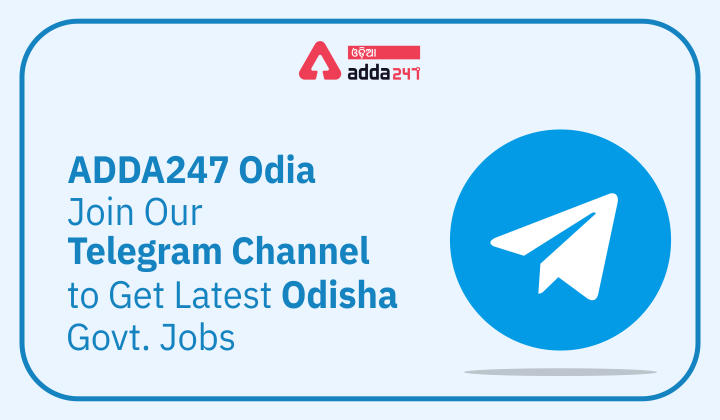
Q9. In the Indian Parliamentary System, ‘Vote on Account’ is valid for how many months (except the year of elections)?
(a) 2 months
(b) 3 months
(c) 6 months
(d) 9 months
S9. Ans.(a)
Sol. The Vote on Account is the special provision given to the government to obtain the vote of Parliament to withdraw money when the budget for the new financial year is not released or the elections are underway, and the caretaker government is in place. A vote on account stays valid for two months.
Q10. In the Constituent Assembly, when was the ad-hoc Committee appointed for the National Flag—
(a) 22th June 1947
(b) 22th July 1947
(c) 22th Jan. 1947
(d) 22th Feb. 1947
S10. Ans.(b)
Sol. Dr. Rajendra Prasad was the head of the Ad hoc committee on National Flag in the constituent assembly. The flag of the congress party was accepted as the National Flag with few changes on July 22, 1947.
Q11. How many total language’s in 8th schedule have?
(a)21 .
(b)09 .
(c) 31 .
(d) 22.
S11. Ans(d)
Sol.Eighth schedule of the constitution contains 22 languages-: Assamese, Bengali, Gujarati, Hindi ,kannada, Kashmiri ,Kankani, Malayalam, Manipuri, Marathi, nepali, oriya, punjabi, sanskritsindhi, Tamil, telguurdu , Bodo , Santhali , maithili , dogri.
Q12. Which of the following states/union territories have a common High Court?
(a) Uttar Pradesh and Bihar
(b) Punjab and Jammu and Kashmir
(c) Andaman & Nicobar and West Bengal
(d)Assam and West Bengal
S12.Ans.(c)
Sol. At present, there are 24 high courts in the country. Out of them, three are common high courts. Delhi is the only Union Territory that has a high court of its own. The other Union Territories fall under the jurisdiction of different State High Courts. Andaman & Nicobar – under Calcutta high court, Daman and Diu – under Mumbai high court, Dadar & Nagar Haveli-under Mumbai high court, Lakshadweep- Kerala high court.
Q13. The Council of Ministers does NOT include –
(a) Cabinet Ministers
(b) Prime minister
(c) Ministers of State
(d) Cabinet Secretaries
S13.Ans.(d)
Sol. Council of Ministers does not include Cabinet Secretaries.
Q14. Article 41 of the Indian Constitution “Right to work, to education and to public assistance in certain cases” deals with?
(a) The Union Government
(b) The directive principles of state policy
(c) The State Government
(d) The fundamental rights of the Indian Citizen
S14. Ans.(b)
Sol. Article 41 of the Indian Constitution “Right to work, to education and to public assistance in certain cases” deals with the directive principles of state policy.
Q15. The reference to the National Capital Territory of Delhi is found in
(a) Article 239A
(b) Article 239AA
(c) Article 239B
(d) Article 239BB
S15.Ans.(b)
Sol. Article 239AA of the Constitution of India granted Special Status to Delhi among Union Territories (UTs) in the year 1991 through 69th constitutional amendment by the Parliament .

